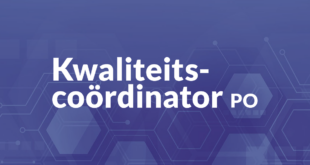 Living with Intensity – a workshop by Susan Daniels, Ph.D., Professor of Educational Psychology and Counseling at California State University
Living with Intensity – a workshop by Susan Daniels, Ph.D., Professor of Educational Psychology and Counseling at California State University
How do we define gifted?
There are many definition but something that’s foundational:
‘A gifted individual is characterized by complexity and unique developmental trajectories.’
A definition from the Colombus Group, 1991:
‘Giftedness is asynchronous development in which advanced cognitive abilities and heightened intensity combine to create inner experiences and awareness that are qualitatively different from the norm. This asynchrony increases with higher intellectual capacity. The uniqueness of the gifted renders them particularly vulnerable and requires modifications in parenting, teaching and counseling in order for them to develop optimally.’
Polish psychologist Kazimierz Dabrowski identified five areas in which children exhibit intense behaviors, which are known as ‘overexcitabilities’ (OE’s). An over excitability is a greater capacity to be stimulated by and respond to external and internal stimuli. It is important to develop a repertoire of possible responses and expressions, along with options for self-regulation and personal choice. We do not want the overexcitabilities to rule the kids.
Below we will go through the five different overexcitabilities : psychomotor, sensual, intellectual, imaginational and emotional. Each overexcitabilitie will be followed by a characteristics and strategies to deal with them.
The 5 Overexcitabilities
- Psychomotor OE
Children with heightened psychomotor excitability is characterized by movement and strong drive and high energy, it’s not necessarily a physical ability. Characterized by: rapid speech, movement, strong drive, high energy and competitive (with themselves or with others).Strategies
+ Discuss the positive aspects of psychomotor OE
+ Provide for reasonable movement in a variety of settings.
+ Involve the child in a physical task; such as sending her on an errand.
+ Provide for and model activities that soothe and calm.
+ Teach that timeout can be a choice not a punishment (be a role model).
+ Teach relation techniques: yoga, meditation, etc.
- Sensual OE
Tightened experience of seeing, tasting, touching and hearing. This can also result in feeling overwhelmed. This is characterized by heightened senses and aesthetic pleasure, sensory seeking, and/or sensory avoidance.Strategies
+ Discuss the positive aspects of sensual OE
+ Provide environments that limit offensive stimuli and maximize comforting stimuli
+ Provide opportunities to dwell in delight. Allow time to smell flowers or watch a sunset.
+ As much as possible, foster control of the child’s own living space and work setting. - Intellectual OE
This OE is not the same as intellectual ability. The passion, the drive and the need to know, even a rage to know. Characterized by: intensified activity of the mind, penchant for probing questions and problem solving, being reflective, asking why – why – why?Strategies
+ Discuss the positive aspects of intellectual OE
+ Honor the need to seek understanding and truth, regardless of child’s age
+ Help children find answers to their own questions
+ Allow children to develop their own projects based upon individual interests
+ Seek opportunities to provide interaction with intellectual peers, not necessarily age peers
+ Occasionally help them get out of their heads and be in their bodies and in the world. - Imaginational OE
Day dreaming, vivid imagery, dramatization, capacity for living in a fantasy world and a low tolerance for boredom.Strategies
+ Discuss the positive aspects but also be aware of what might be negative; like fear.
+ Cherish creative and imaginational expression
+ Encourage children to share what they imagine-tell stories or draw images of imagined friends, pets, buildings, creatures, and worlds.
+ Help children to distinguish between the imaginary and the real world.
+ Provide outlets for creative pursuits-writing, drawing, acting, dancing, designing, buildings, etc.
+ Help children use imagination to solve problems and cope with challenges.
+Ensure that children can distinguish between reality and fantasy. You want to honor imagination but also be clear with what the kids are experiencing. Imagination can be a really important part of development, but should not be confused for reality. - Emotional OE
Extreme and complex feelings, physical expressions of stress or strong emotions, strong affective expressions, empathy, anxiety and/or inhibitions, capacity for strong attachments; feel relationshipsStrategies
+ Discuss the positive aspects of emotional OE
+ Accept feelings and their intensity
+ Develop a feeling vocabulary and with it greater awareness of emotions; a sheet of words that describe subtleties of emotions. That helps the child to be more in touch and gives them more ability to express emotions.
+ Teach children to anticipate physical and emotional experiences, and rehearse responses and strategies
+ Model ‘temperature taking’ > metaphor for emotional state. Find and choose activities that provide meaningful opportunities for empathy and social concern
Honor the individual: Any child can have one, some or all of these overexcitabilities. It’s more often that one has more of them and that they are all in interaction which each other.
Susan Daniels, Ph.D., is Professor of Educational Psychology and Counseling at California State University – San Bernardino, where she directs the College of Education Graduate Certificate in Gifted Education and teaches courses in child and adolescent development; gifted education; and creativity, thinking, and problem solving. Dr. Daniels is co-editor and co-author of Living with Intensity (Great Potential Press, 2008). In addition, and along with Dr. Peters, Dr. Daniels is a co-founder of Camp Summit, a residential summer camp for gifted youth and co-author of Raising Creative Kids (Great Potential Press, 2013).
 SBO Blog Het blog van Studiecentrum voor Bedrijf en Overheid
SBO Blog Het blog van Studiecentrum voor Bedrijf en Overheid



